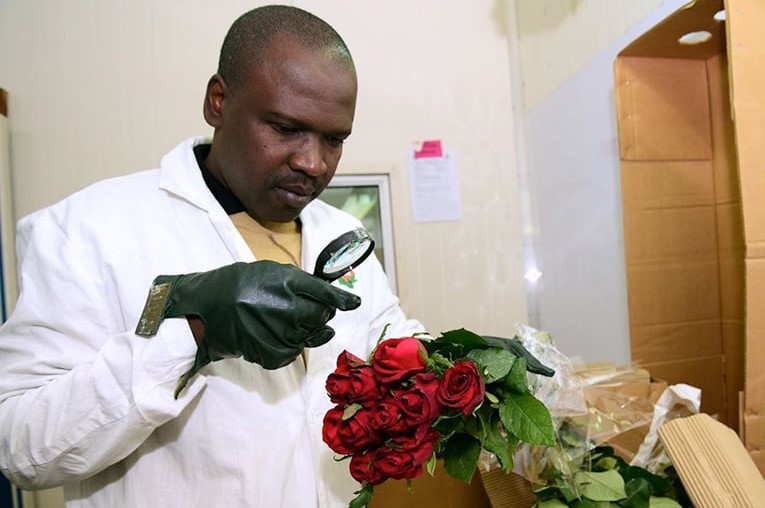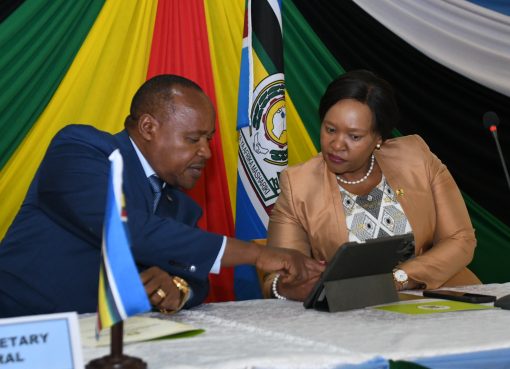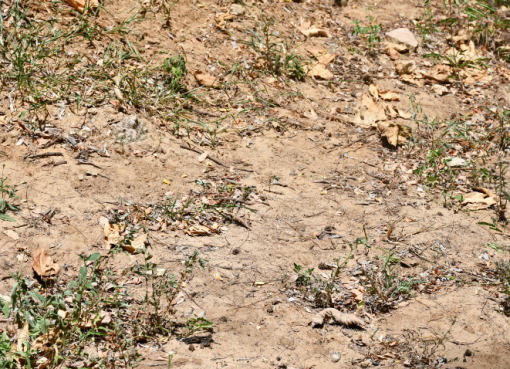The government continues to undertake policy reforms in the Agriculture sector to ensure producers in crops, livestock and fisheries subsectors progressively access quality agricultural inputs.
Cabinet Secretary in the Ministry of Agriculture and Livestock Development, Mithika Linturi said today that the reforms target institutional reforms and implementation of targeted programmes to initiate and consolidate proven approaches bases on best practices in Agriculture.
In a speech read on his behalf by the State Department of Crops Principal Secretary Kellow Harsama the CS told the 4th International Phytosanitary conference that challenges posed by pest and diseases across the regional boundaries occasioned by the effects of climate change negatively affected the food security situation in the country.
“What this means is that even as African continent grows food it needs to know how to mitigate against the challenges of pests and diseases which have been identified to cause up to 40 percent reduction in yield”, he added
Linturi said that the Kenyan Government has a constitutional and civic duty to achieve the right to food for all Kenyans as required under Article 43 of the laws and strives to ensure that food was available, affordable and safe for consumption.
The CS further said that increasing agricultural productivity, providing safe, nutritious food for the population and increasing international markets for Kenyan produce is among the factors that inspired Kenya’s new government to launch its Bottom-Up Economic Transformation Plan (BETA)
Speaking on the sidelines of the conference, PS Harsama said that the government will ensure fresh produce exports to Europe and other export destinations have met the standards to avoid rejection and high cost of doing business.
He noted that due to strictness by export destinations, local fresh produce have either been banned or retested in the laboratories thus leading to high cost of doing business.
“In the last decade Kenya has recorded high cases of notifications due exceeding maximum residual levels caused by pesticides applied and the country has had problems on issues of regulation guiding what they call application of residues, chemicals on some of the fresh produce like fruits and vegetables” Harsama said

He however reiterated that due to collaboration between the Government and export destinations, the problem has reduced drastically. “I can assure export destinations that local fresh produce players have adhered to the global standards and thus consignments being shipped every day are free of foreign materials and high levels of pesticides”, Harsama said
The PS further said that the Government has also invested heavily in key regulatory agencies and putting in place key structures to help in lengthening the longevity of the produce such as the food safety bill , a critical tool to guide food standards and food safety in the country and which is currently in parliament and is going to be debated and be out very soon.
Kenya Plant Health Inspectorate Service (KEPHIS) Managing Director Prof. Theophilus Mutui said that the risk of introduction of pests to Kenya during trade is compounded by globalization and trade liberalization which have led to increased movement of goods and people across the world increasing the probability of introduction of plant pests
‘KEPHIS is building capacity of the region through the Centre of Phytosanitary Excellence (COPE) by training plant health and agricultural practitioners on Good Agricultural Practices (GAP) including the implementation of sanitary and phytosanitary international provisions and modern diagnostics methods”, he said
He added that KEPHIS has also put in place systems for certification of seed so that the public have access to high quality climate resilient and high-yielding seeds and propagating materials for enhanced productivity.
“The presence of the International Seed Testing Association (ISTA) certified laboratory in KEPHIS Nakuru supports not only Kenya but the region in providing certified seed for various crops,” said the MD.
Prof Mutui added,” We commit to continue the bilateral and multilateral trade negotiations towards opening new markets and expanding the existing ones. We implore all stakeholders to play their parts in the value chains of various plant, plant products and regulated articles towards compliance to the set market requirements to avoid interceptions that dent the country`s market rating.”
KEPHIS Board Chairman Joseph M’eruaki M’uthari said that the institution has heavily invested in Pest Risk Analysis, border surveillance and inspection, quarantine and diagnostic systems, analytical testing capacity that support import and export of plants and plant produce.
“The Kenyan fresh produce is globally acclaimed and KEPHIS, as the gate-keeper on matters phytosanitary, has played a key role to ensure that we meet the market requirements and earn Kenya the high foreign exchange it continues to earn”, he said.
M’uthari explained that KEPHIS has invested in automation of procedures and integration with other existing Government systems to streamline trading activities and reduce the cost of doing business and equally accreditation of laboratories to meet current international standards have placed Kenya on the world map for providing reliable results to support trade and regulatory decision making.
The three day conference which has brought together private, public, national, regional and international stakeholders in the plant health sector intends to deliberate on ways to strengthen capacity for implementation of phytosanitary measures to facilitate trade and compliance to market requirements.
By Wangari Ndirangu




